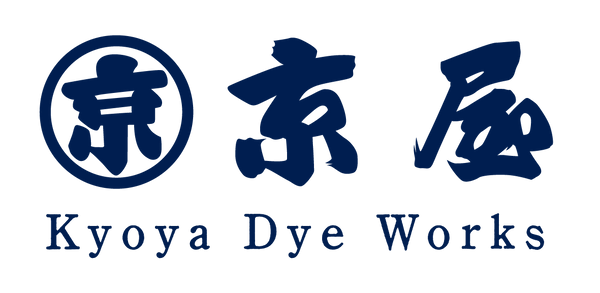Lacquer-Dyed Sappakama Pants
Lacquer-Dyed Sappakama Pants
The "sappa-kama" (monkey pants), a traditional workwear from Tohoku, is designed for agility, allowing freedom of movement in the mountains and fields. Used for farming, mountain work, and as indoor wear, its relaxed hips and tapered design from the calves to ankles were made for ease of movement and comfort.
Although rarely seen today, the sappa-kama was crafted to meet the demands of a life full of movement. Its timeless appeal fits both historical and modern lifestyles, inspiring us to create the "Sappakama" for today’s needs.
Iwate prefecture's lacquer wood is a precious material used in the restoration of national treasures. Once the tree’s sap is harvested, the tree's life ends, and the wood is mostly discarded without being utilized. Kyoya Dye Works makes use of this lacquer wood, incorporating it into our dyeing process.
Couldn't load pickup availability
Out of stock
View full details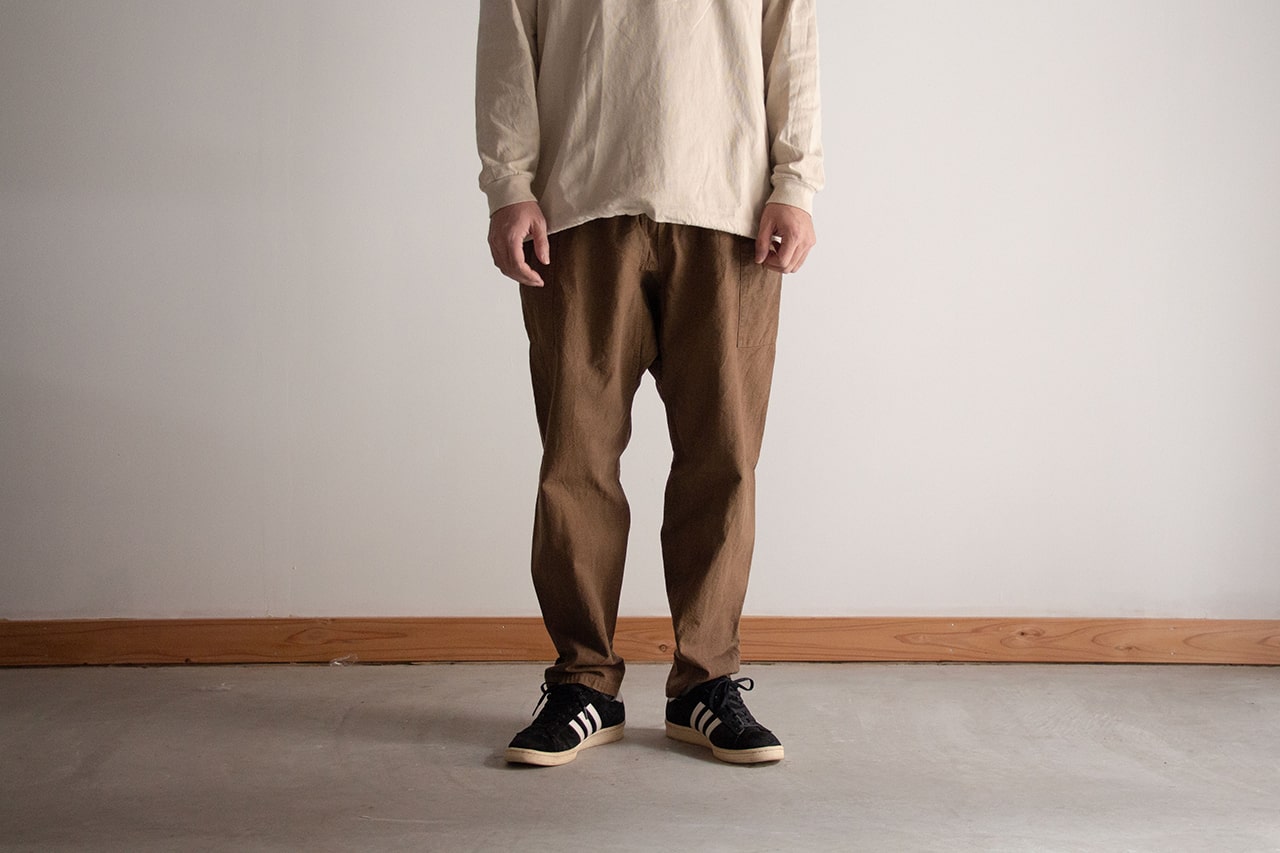
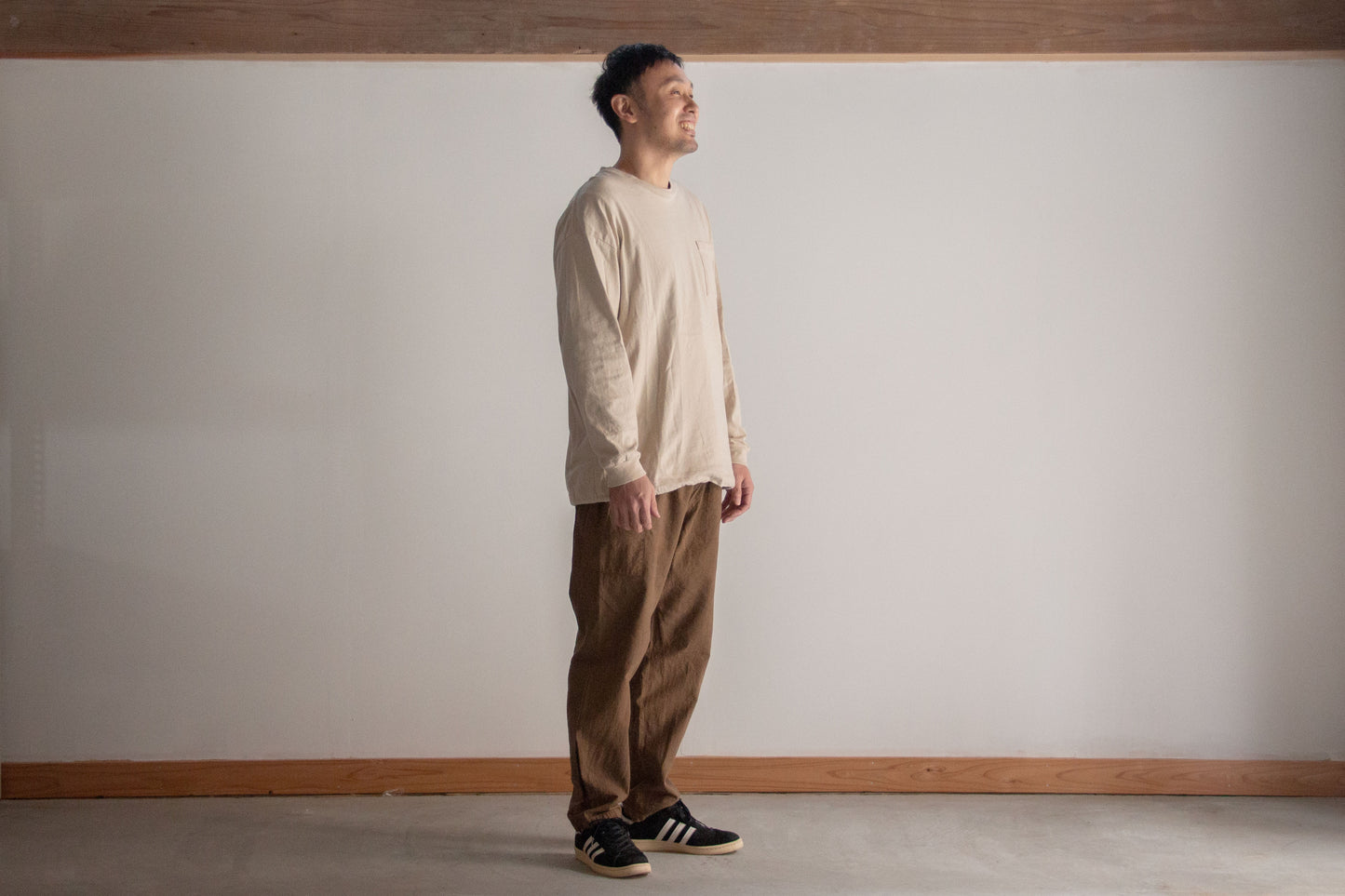
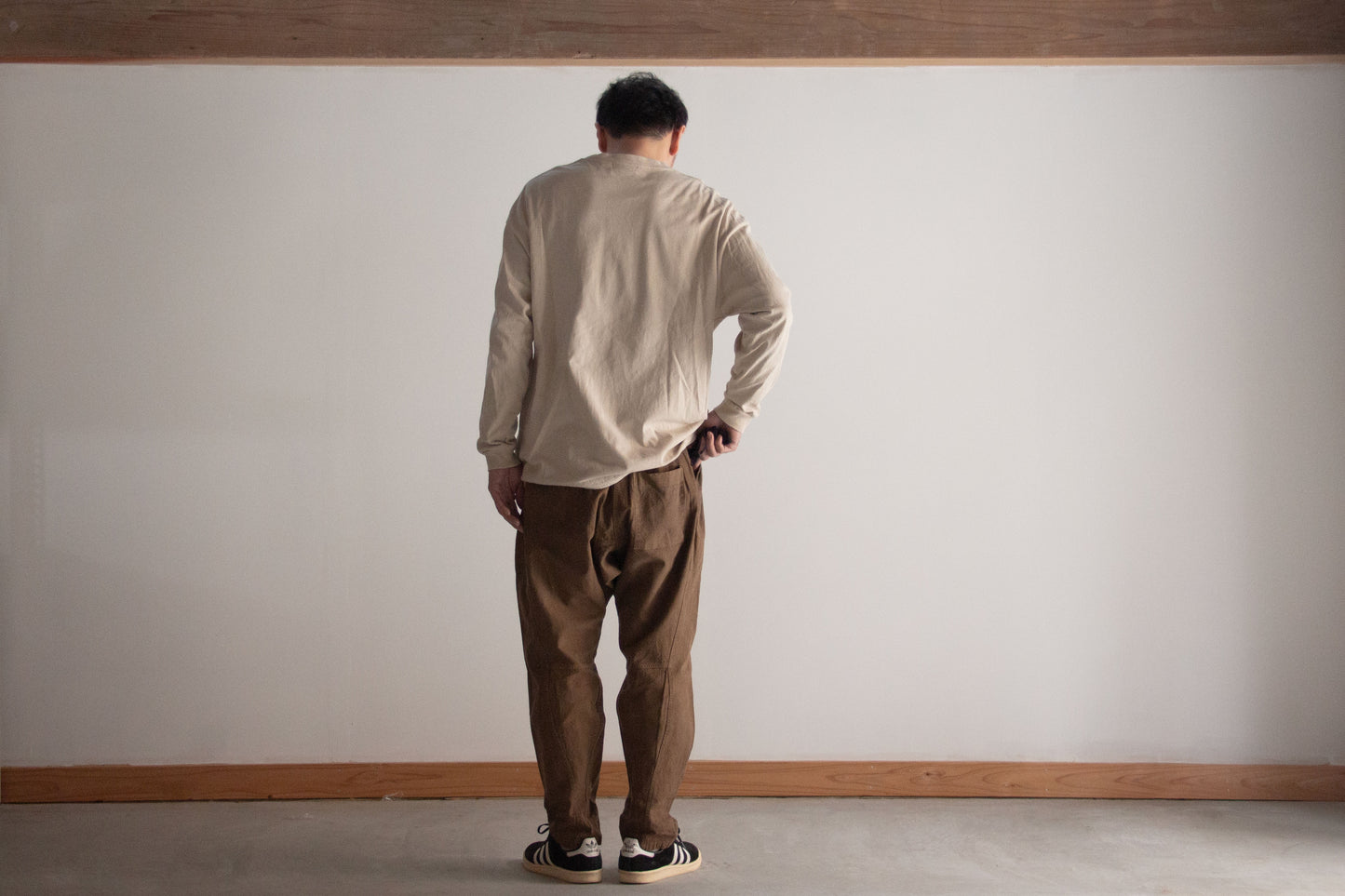
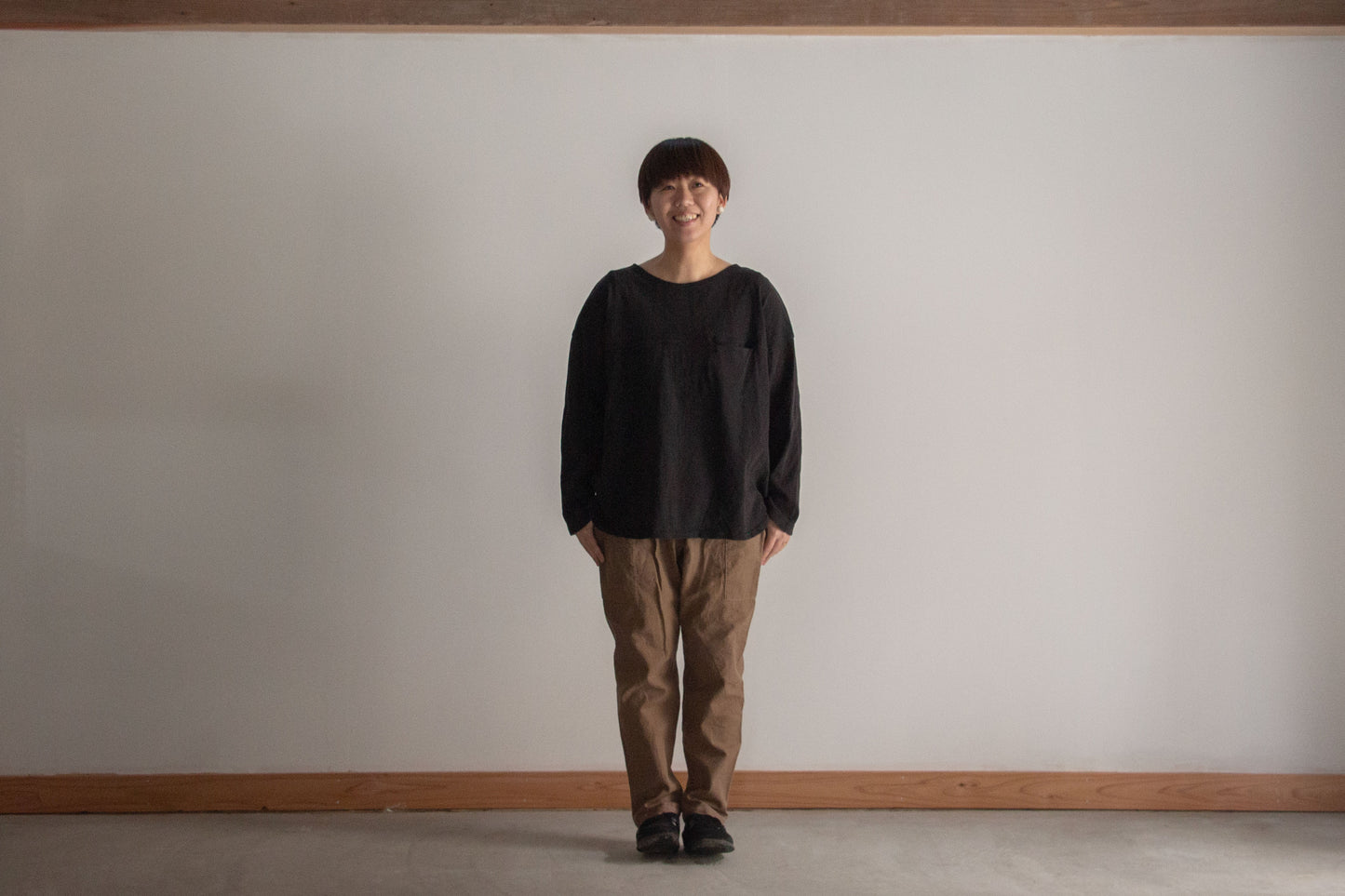
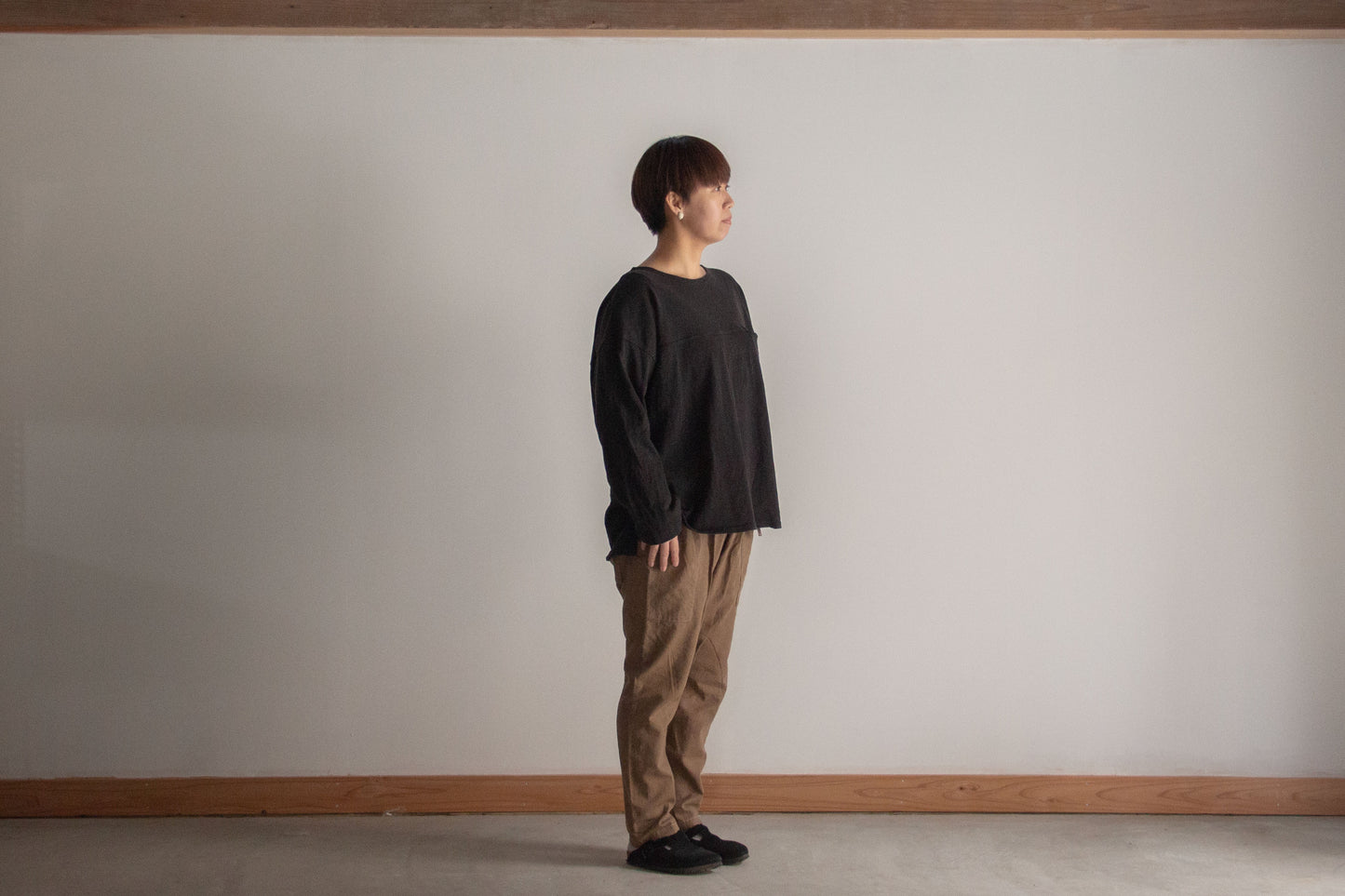
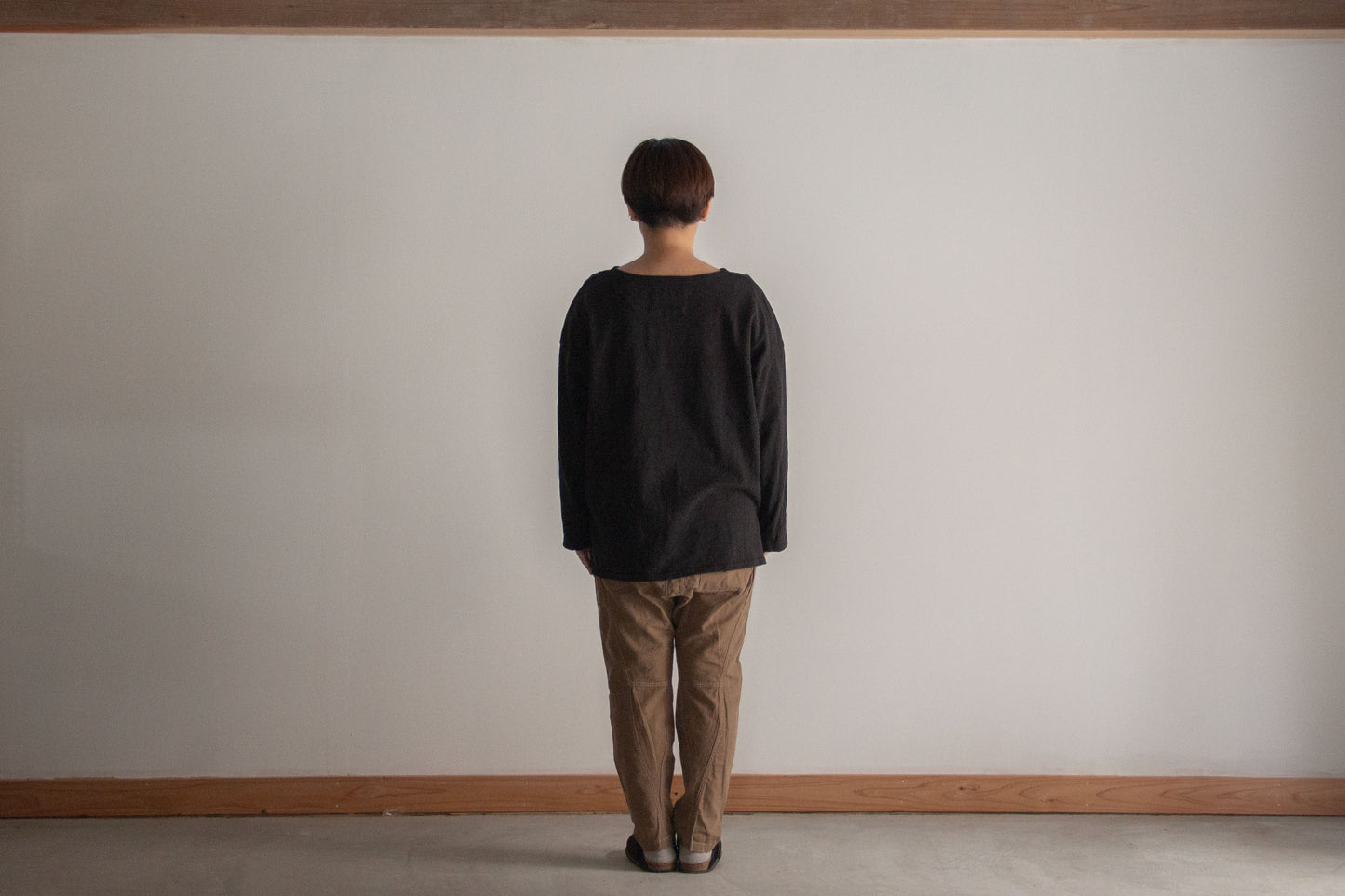
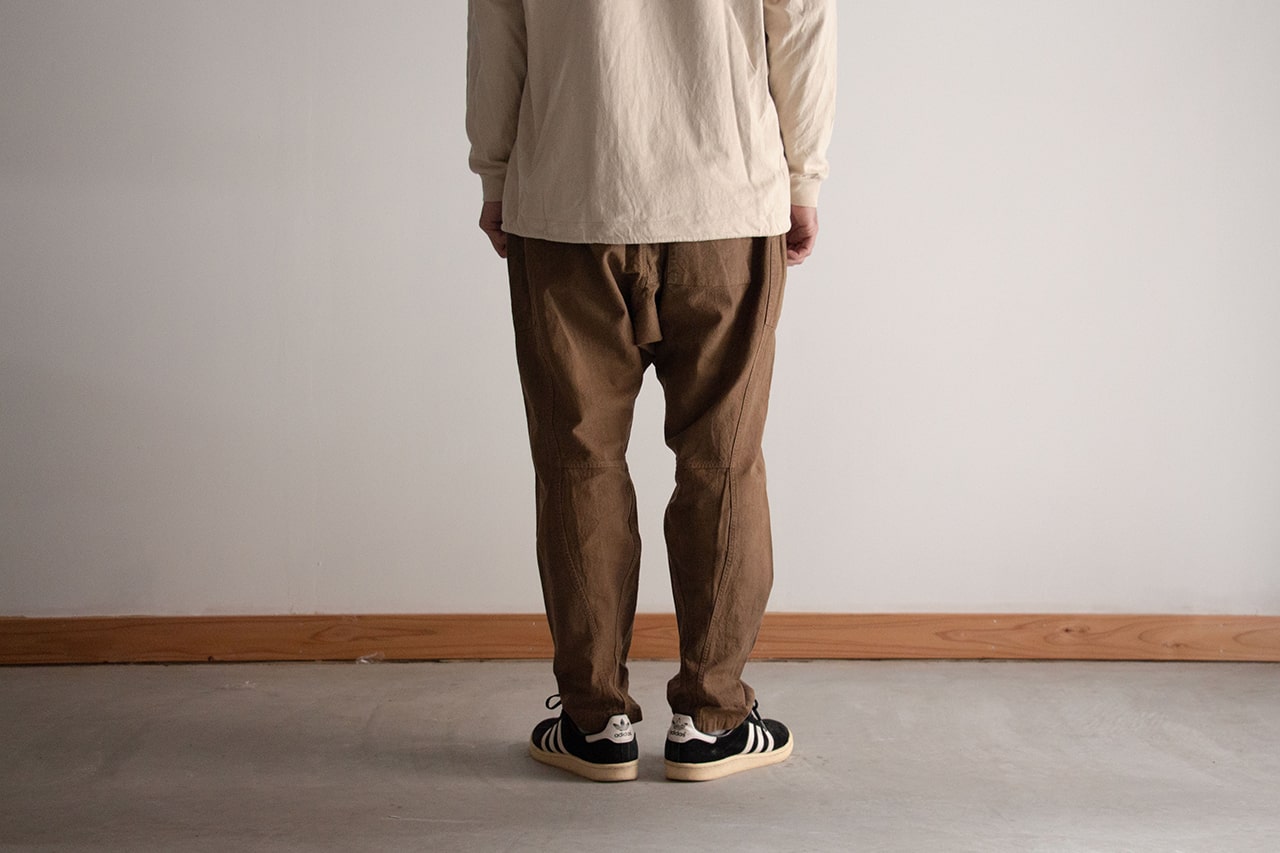
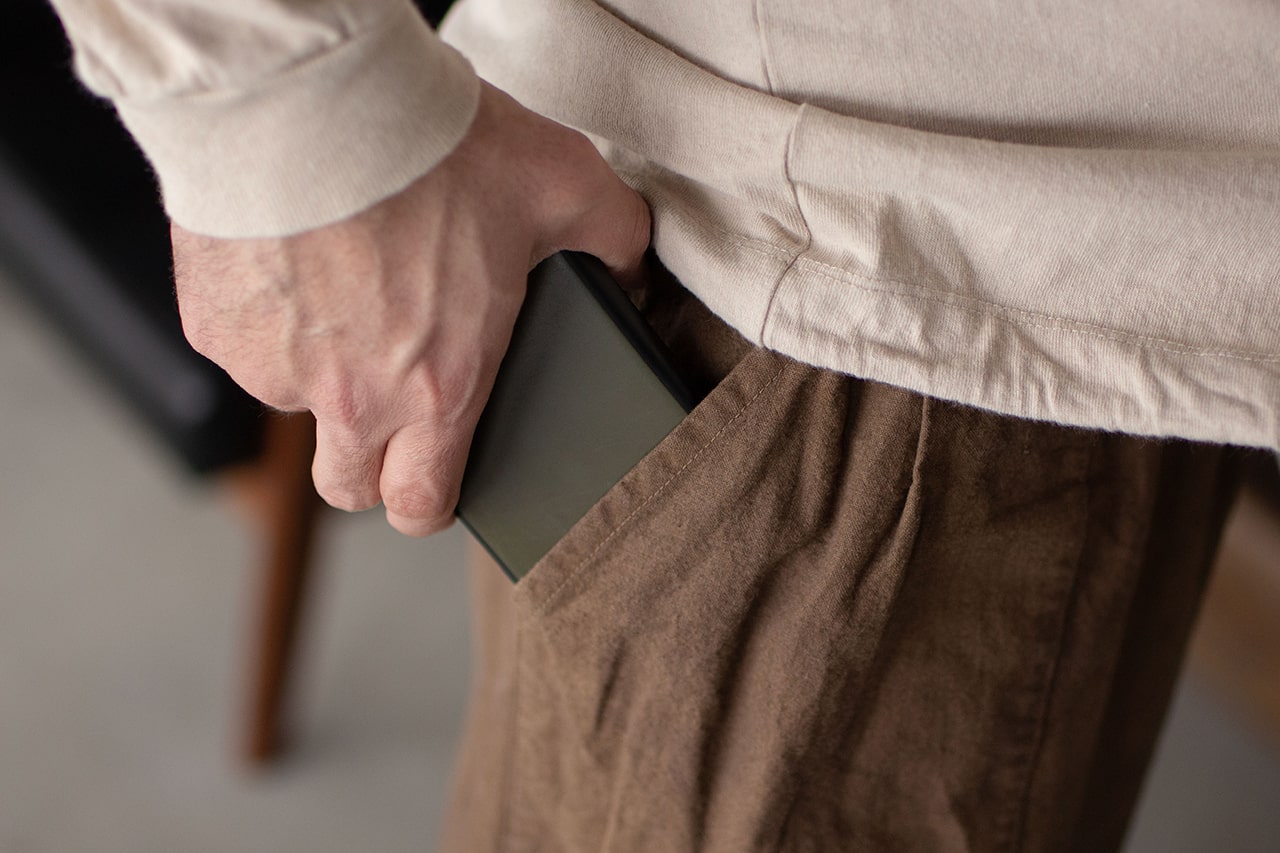
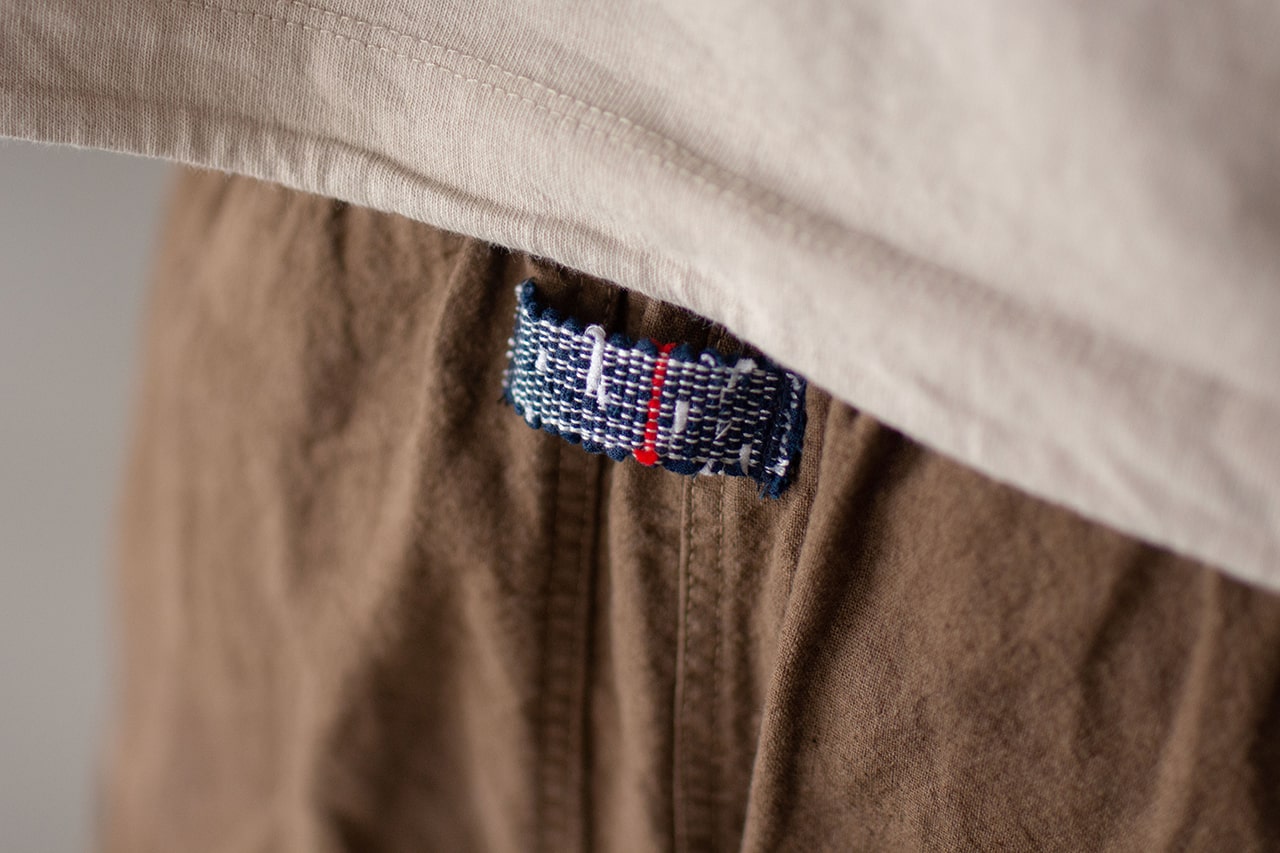
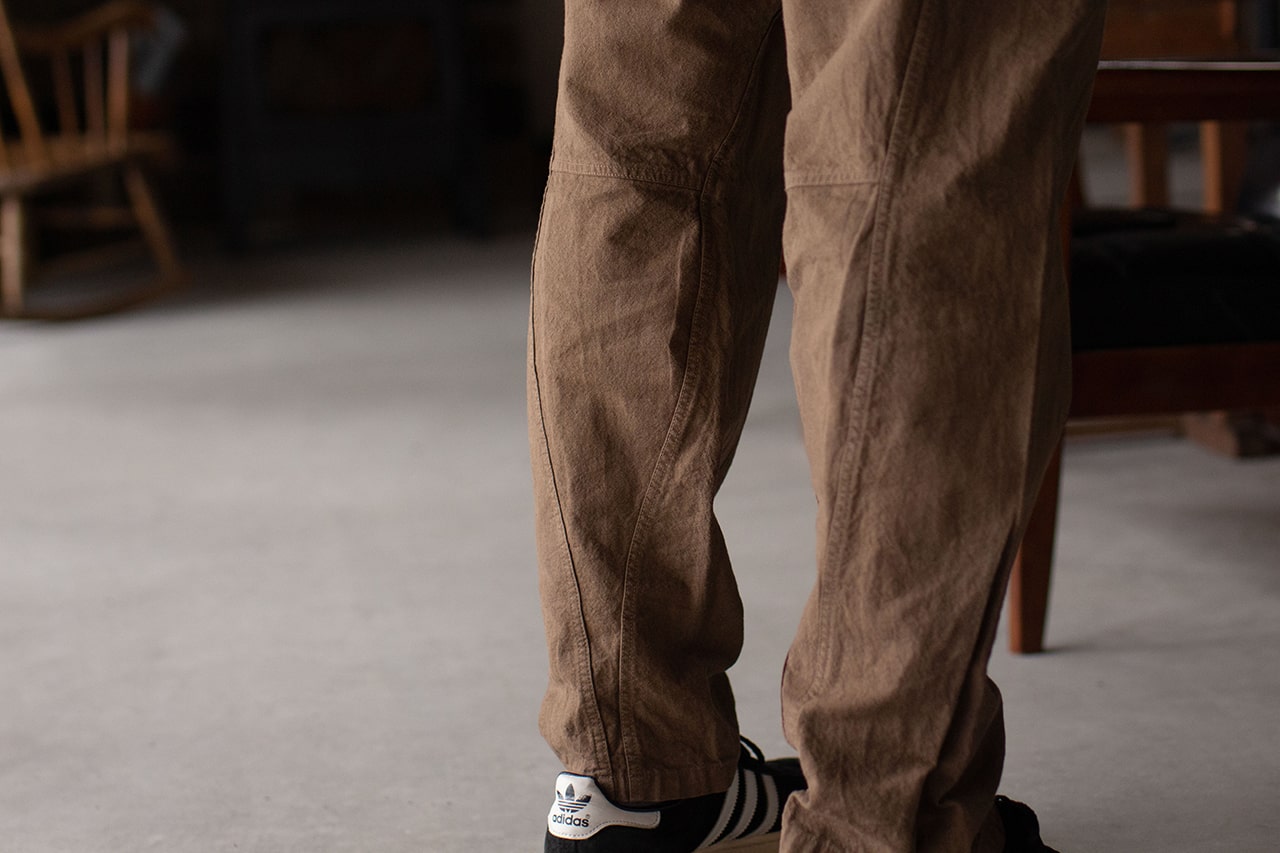
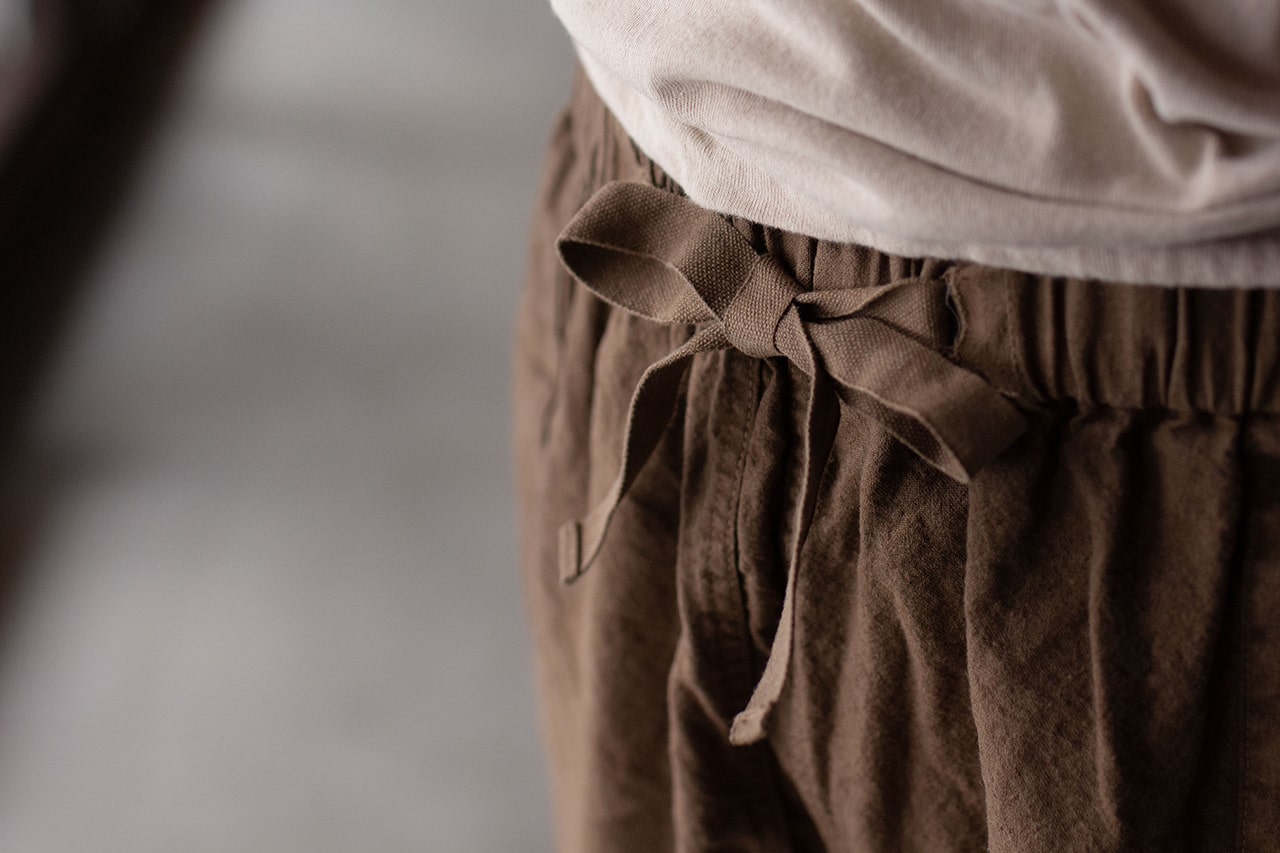
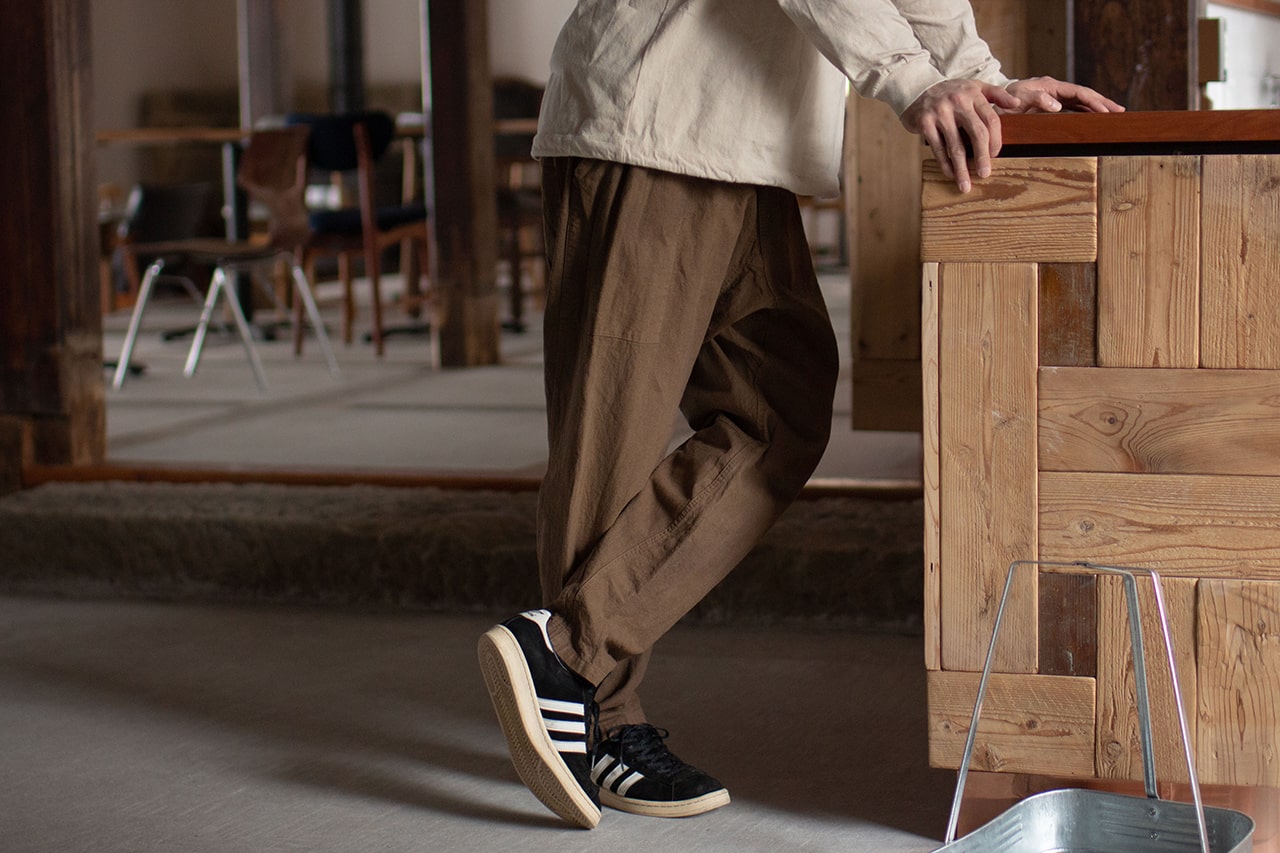
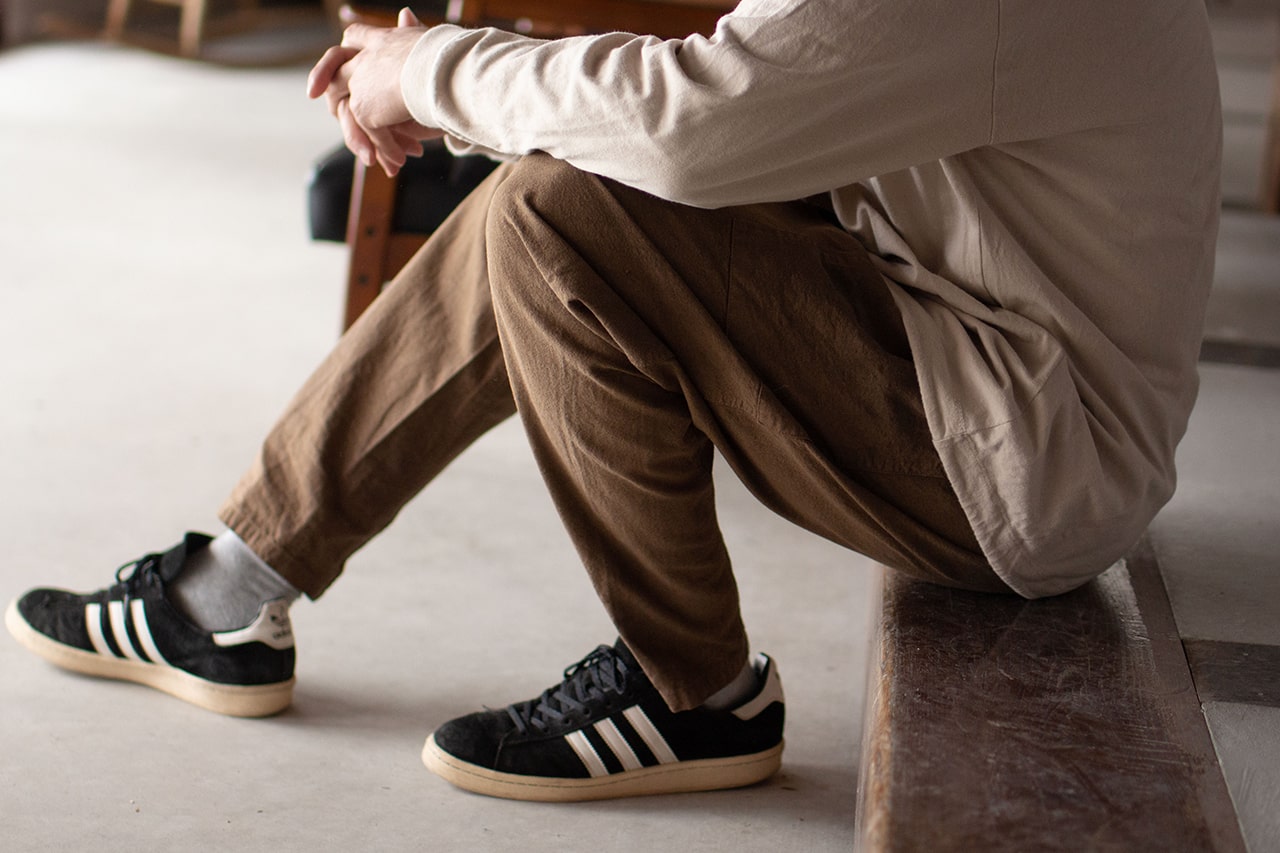
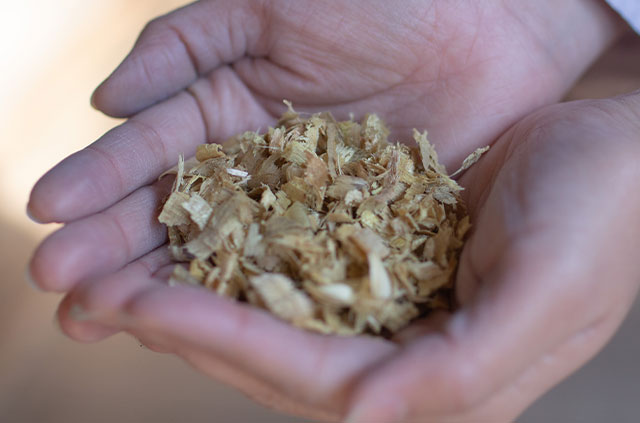
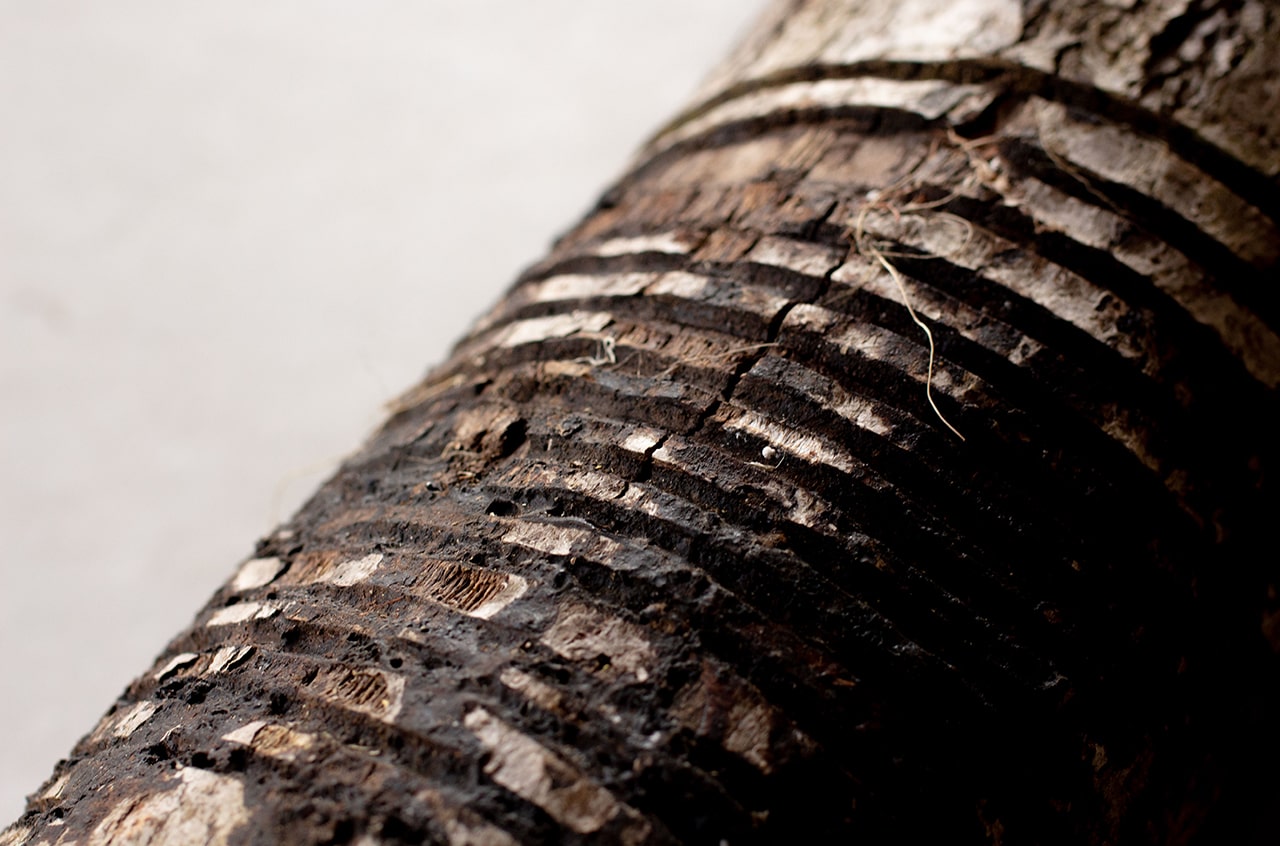
Collapsible content
Product Details
Sappakama Pants dyed with Iwate urushi, a natural plant dye

Kyoya Dye Works' popular Sappakama now comes in colors dyed with plant-based dyes.
The "Sappa-Kama," an old traditional farming garment from Tohoku, was designed with practical features to make life easier for people with active lifestyles.
Kyoya Dye Works' Sappakama retains the movement-friendly design of its traditional predecessor while incorporating modern-day functional elements, such as pockets, to create a new version of the classic garment.

The calm brown color is dyed with "Urushi Dye," made from the lacquer tree, which is a major product of Iwate Prefecture in Japan.
Kyoya Dye Works' Urushi Dye uses wood chips that are produced when the lacquer tree is milled. The natural color found in the wood is carefully simmered over time to create a deep, rich tone.
Wearing the Color of the Land: Urushi Dye


Ishinomaki, located in Iwate Prefecture, is a major producer of urushi (lacquer). The techniques of urushi, used in the creation of vessels, Buddhist statues, and the restoration of important cultural assets, have connected Japan’s traditional culture to the present day.
The urushi that is generally known comes from the sap of the urushi tree. Every year, lacquer workers harvest the sap from hundreds of trees, carefully tapping each one. After the sap has been fully extracted, the tree will die, and to allow new growth, the tree must be cut down.
Until now, the felled urushi trees have not been fully utilized. It’s wasteful not to make use of such an important mountain resource, and efforts are underway to use these trees for future development of the urushi industry in this area.
Using nature’s blessings without waste, and wearing the color of the land, is a way to learn about and live with gratitude toward the land. At Kyoya Dye Works, we take great care in using these trees to extract the natural colors, dyeing the fabric slowly and with attention to detail.
*Please note that, because natural plants are used, there may be slight variations in color between products.
*The dye is extracted from the wood of the urushi tree, not from the sap of the tree bark, so there is no concern for skin irritation.
Ease of Wear and Practicality Combined

The waistband is made with elastic for easy on and off, and the fit can be adjusted by tying the drawstring, following the traditional design of the sappa-kama.

There are two large side pockets and one back pocket. The pockets are spacious enough to easily hold a mobile phone or wallet, making it convenient for a hands-free outing.
"Using what is available" — A traditional Tohoku craft embedded in the "saki-ori" loop

The loop at the back of the neckline is made from "saki-ori," a woven fabric created from leftover material during production. It symbolizes Tohoku's respect for resources and can be used as a hook to hang items.
*Note: Since it's made from leftover fabric, the color of the saki-ori may differ from the photos.
Natural texture fabric made from cotton and linen

Sappakama is made from "natural" cotton-linen canvas fabric.
This medium-weight fabric is not see-through, even in its natural color. The fabric is treated with dyeing and washing processes, giving it a natural texture and subtle wrinkles. Made from natural fibers of cotton and linen, the fabric softens and conforms to the body with use.
The natural fabric offers a genuine, earthy texture that retains the character of the original plant fibers. Furthermore, the fabric is processed with minimal chemicals or human intervention, making it an environmentally-friendly choice.
We believe this fabric, which aligns with our philosophy of creating tools that complement daily life, is perfect for Kyoya Dye Works.
Important Notice:
While the natural fabric retains the raw qualities of the plant fibers, slight color variations and fading may occur during the dyeing process. We ensure that any noticeable color discrepancies are excluded during inspection, but minor color variations due to the natural characteristics of the fabric are considered part of the intended texture and will be shipped accordingly. Thank you for your understanding.
Note:
The video features Sappakama in a different color. Please refer to it for a sense of the material and texture.
Size Chart
| S | M | L | LL | |
| Waist (Elastic) | 59-105cm | 63-110.5cm | 68-116cm | 74-121.5cm |
| Total Length | 84cm | 88cm | 93cm | 96cm |
| Inseam | 58cm | 62cm | 68cm | 70cm |
| Hip | 57cm | 60cm | 63cm | 66cm |
| Thigh Width | 23.5cm | 25cm | 26.5cm | 28cm |
| Calf Width | 20.5cm | 22cm | 24cm | 25.5cm |
| Hem Width | 16cm | 17cm | 18cm | 19.5cm |
-
Please note that due to the use of the immersion dyeing technique, there may be a size variation of approximately 2 cm due to fabric shrinkage.
Materials
Cotton-linen canvas fabric (52% cotton, 48% linen)
Care Guide
- Machine washable, but to prevent color transfer, wash separately from other laundry when first used.
- Use a neutral detergent for washing, and avoid bleach.
- To prevent fading and discoloration, it is recommended to air-dry in the shade. Store in a place that is not exposed to direct sunlight.
- When ironing, use a medium heat setting and place a cloth between the fabric and the iron.
Shipping & Return Policy
Shipping Regions
We ship worldwide from Japan, but delivery to certain countries or regions may be unavailable due to global circumstances and logistical constraints.
Shipping Methods and Carriers
We ship your order using EMS (Express Mail Service) by Japan Post, a reliable international shipping service.
Processing Time
Your order will be shipped within approximately 7 days from the date of purchase.
Customs, Duties, and Other Fees
Since our products are shipped from Japan, customs duties or taxes may apply in the destination country. These fees are the responsibility of the customer, and please understand that we are unable to manage these costs.
If you have any questions, please contact the customs office or relevant authorities in your country before placing your order.
Returns and Exchanges
We take great care to ensure the quality of our products. However, we kindly ask for your understanding that returns or exchanges cannot be accepted unless the item is defective or you have received the wrong product. Due to the additional costs associated with international shipping—such as import/export duties, shipping fees, and longer transit times—this policy helps us maintain a smooth shopping experience for all customers.
Damages and issues
If you receive a damaged or incorrect item, please contact us within 7 days of delivery via email (info@kyo-ya.net) and include photos of the damaged or incorrect product(s). We will do our best to resolve the issue promptly and ensure your satisfaction.
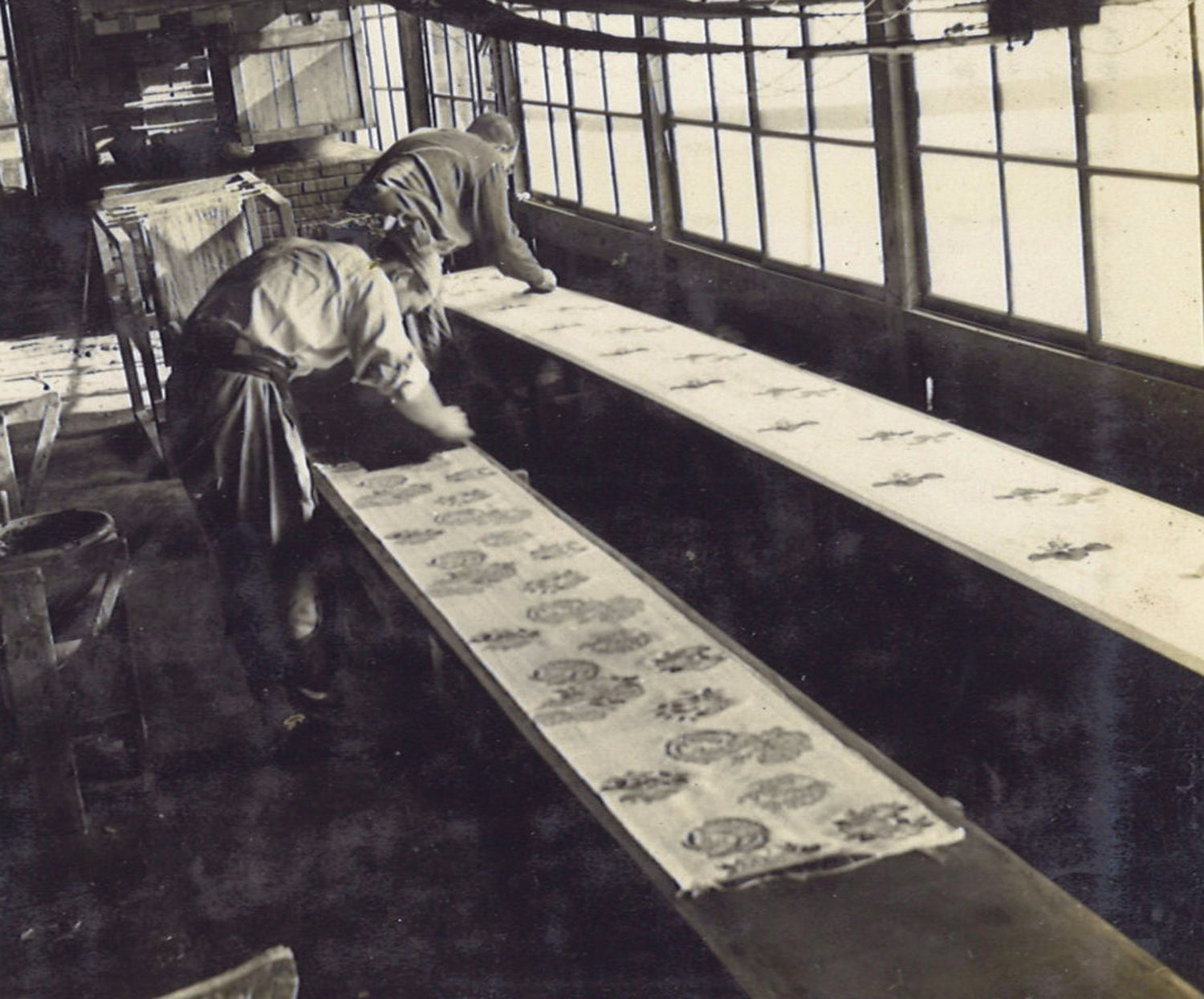
Our Story
Kyoya Dye Works blends tradition and modernity, creating durable, sustainable textiles inspired by Japan's cultural heritage and natural beauty.
